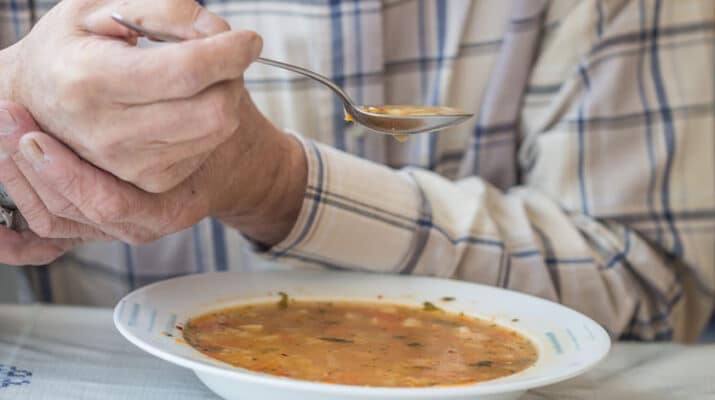A report by the Food Bank of Central New York shows 167,630 people in a 11-county area in CNY affected by food insecurity
By Deborah Jeanne Sergeant
While many people have figured out ways to get what they need and do what they need to do during the pandemic, some older adults still feel the effects of food access challenges because of COVID-19.
According to Food Bank of Central New York’s 2017 hunger assessment, 167,630 people in the organization’s 11county service area are food insecure.
The pandemic has only worsened the problem.
Although stimulus checks have helped, many businesses and organizations have opened since last year’s quarantine period and the supply chains have become re-established, many older adults are still understandably hesitant to go near crowds — including at the grocery store.
The frailty of older age, along with the age-related conditions many older adults experience, makes them more vulnerable to infectious illnesses such as COVID-19. Staying away from crowds represents one strategy to limit exposure; however, it also makes obtaining food difficult.
“I see older adults in stores shopping, but I also hear of many that won’t go out for fear of exposure,” said Laurel Sterling, registered dietitian, nutritionist and educator with Carlson Laboratories. “This applies to people of all ages, I feel.”
Sterling recommends looking into stocking healthier microwavable meal options, soups and stews, as “these are nutritionally packed and easy to reheat.”
Older adults who feel uncomfortable using technology may not be as likely to order food online for delivery or curbside pickup like those who use technology well.
“Most of my patients have wall phones,” said geriatrician Sharon Brangman, chairwoman of the department of geriatrics and director of the Geriatric Medicine Fellowship Program at Upstate Center of Excellence for Alzheimer’s Disease and Nappi Longevity Institute. “They need help in ordering things off the internet. I can think of one couple at the beginning of the pandemic who were used to going to the grocery store. They actually had smartphones but couldn’’ get the app on their phone. If you can’t afford internet, then you’re really lost. This is where families need to help.”
Brangman knows of adult children taking over the grocery shopping so their parents can stay home, away from germs, even though they ordinarily would drive. Some adult children set up grocery and prescription delivery so their parents do not have to worry about shopping at all.
“If you don’t have any idea how to use the internet, this isn’t the time to learn,” Brangman said. “It’s stress inducing.”
The pandemic has also exacerbated food insecurity for older adults who had previously relied upon senior centers for meals, since most of those remain closed; however, some have begun offering grab-and-go meals and are delivering meals to clients’ homes.
COVID-19 has also affected food affordability for some older adults.
Although older adults on fixed incomes saw no change to their income because of the pandemic, some who are still working to supplement their income may have lost work hours or experienced a furlough or permanent layoff. Or they may live with relatives who are out of work or struggling to get by with fewer hours. That means less money for the household to spend on food.
Food Bank of Central New York (www.foodbankcny.org) distributes emergency food to 443 programs like food pantries and soup kitchens among 11 counties in Central and Northern New York. The Food Bank distributes more than 20.4 million pounds of food — about 17 million meals — annually. These programs help people spend less on food so they can eat better and afford housing and medication.
Oswego County’s mobile food pantries are listed at https://health.oswegocounty.com/information/mobile_food_pantry.php.
Other organizations such as churches and senior centers have organized grab-and-go meals, too. This helps connect seniors who are concerned about COVID-19 with the food they need until congregant meals open. Most of these programs have still not fully opened.
Anyone struggling to obtain food because of COVID-19 concerns or finances should call 211 to ask about the options available to help.

